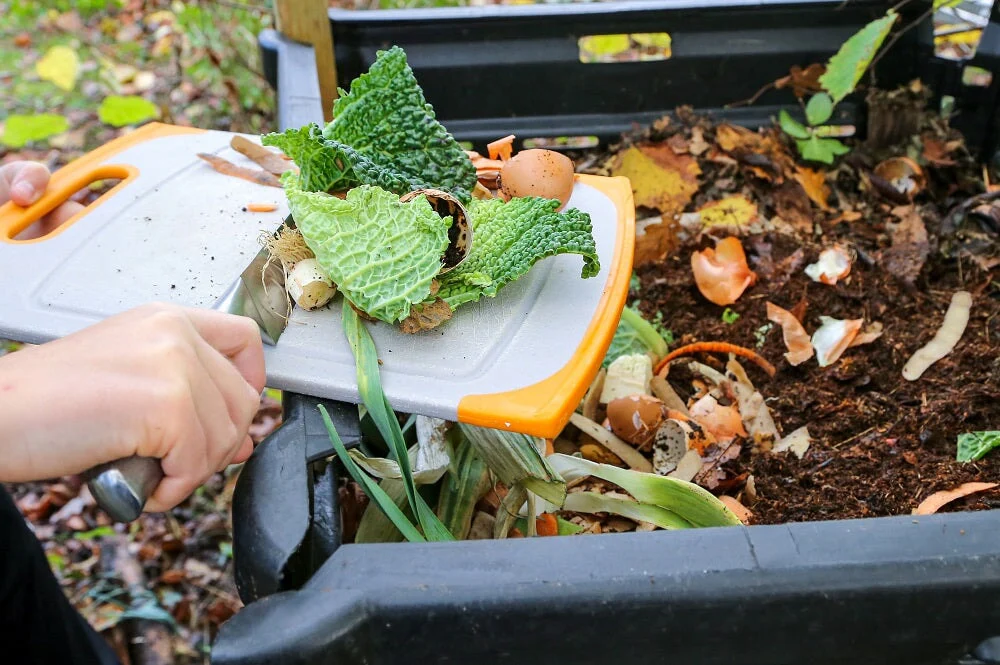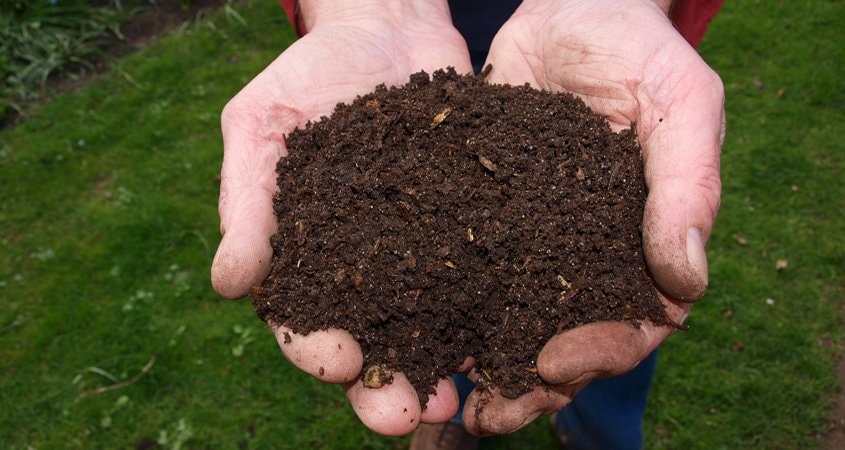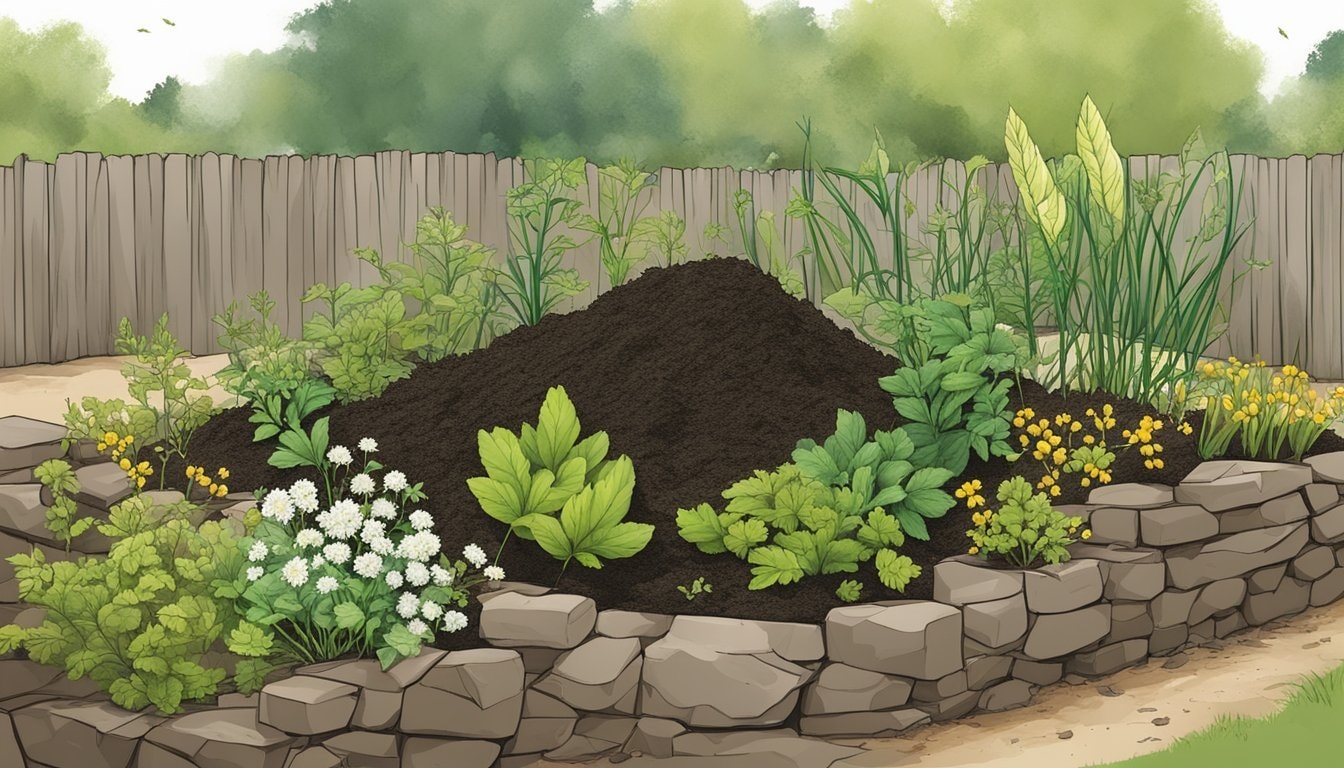Composting plays a crucial role in sustainable landscaping, providing a natural process to recycle organic waste into nutrient-rich compost. This process enriches soil health, promotes plant growth, and conserves water resources, making it essential for eco-friendly landscaping practices.
At ADL Martinez Services, we specialize in integrating sustainable practices into our landscaping services in Houston, TX, and Humble, TX. Our focus on composting helps reduce greenhouse gas emissions, lower waste volumes sent to landfills, and enhance the overall health and beauty of your garden. By choosing our services, you support a greener, more sustainable community.

Composting Basics
Understanding the composting process is key to effective composting. Composting involves the aerobic decomposition of organic materials by microorganisms, turning yard waste, kitchen scraps, and grass clippings into valuable compost. Maintaining the right balance of carbon-rich materials (like leaves) and nitrogen-rich materials (such as food scraps) is crucial.
Adequate moisture and oxygen flow are essential to ensure that microorganisms break down the organic waste efficiently, resulting in nutrient-rich compost that can be used to enrich soil.

The Benefits of Composting
Composting offers numerous benefits for sustainable landscaping. It enriches soil fertility by providing essential nutrients like nitrogen, phosphorus, and potassium, promoting healthy soil and robust plant growth.
Additionally, composting conserves water by improving soil structure, which enhances its ability to retain moisture, reducing the need for frequent watering. Moreover, composting significantly reduces greenhouse gas emissions by diverting organic waste from landfills, thereby mitigating methane emissions and contributing to a healthier environment.
Soil Health and Composting
Composting significantly improves soil health by enhancing its structure and fertility. The addition of organic matter from compost improves soil structure, making it more porous and better able to retain moisture. This reduces the need for frequent watering and supports plant growth.
Moreover, compost introduces beneficial microorganisms into the soil, which play a vital role in nutrient cycling and breaking down organic matter. These microorganisms help build healthy soil, promoting sustainable gardening practices and supporting a diverse and resilient ecosystem.

Reducing Waste and Pollution through Composting
Composting is an effective way to reduce waste and pollution by diverting organic waste materials from landfills. When organic waste decomposes in landfills, it produces methane, a potent greenhouse gas.
By composting yard waste, kitchen scraps, and food waste, we can significantly reduce methane emissions, thereby lessening our environmental impact. Composting transforms these materials into nutrient-rich compost, providing a sustainable solution to waste management and promoting a healthier environment.

Composting for Climate Change Mitigation
Composting plays a crucial role in mitigating climate change by reducing our carbon footprint. By lowering the volume of organic waste sent to landfills, composting decreases greenhouse gas emissions. Additionally, composting contributes to carbon sequestration by storing carbon in the soil.
This process helps stabilize atmospheric carbon levels, making composting a vital practice for combating climate change. Implementing composting in your gardening routine supports sustainable agriculture practices and promotes a resilient ecosystem.
Practical Composting Tips and Initiatives
Choosing the right composting method is essential for success. Whether you opt for backyard composting, vermicomposting, or community composting programs, it’s crucial to balance greens and browns in your compost piles. Greens include nitrogen-rich materials like grass clippings and food scraps, while browns are carbon-rich materials such as leaves and cardboard.
Maintaining the right balance ensures effective decomposition and prevents unpleasant odors. Supporting local composting initiatives and advocating for composting policies can further promote sustainable landscaping practices in your community.
Sustainable Landscaping with Compost
Composting is a cornerstone of sustainable gardening practices, offering a simple yet impactful way to enhance soil health and support plant growth. By enriching soil with organic matter and beneficial microorganisms, composting improves soil fertility, structure, and moisture retention.
This nutrient-rich soil amendment reduces the need for synthetic fertilizers and promotes a healthy, thriving garden. Incorporating compost into your landscaping routine supports sustainable agriculture practices and helps create resilient, eco-friendly green spaces.

Call to Action
Contact ADL Martinez Services for professional composting and sustainable landscaping services in Cypress, Houston, TX, and Humble, TX. Our eco-friendly practices can transform your garden and support a healthier environment.
Join local initiatives and community composting programs to further promote sustainable practices in your area. Let’s work together to reduce our environmental footprint and create beautiful, sustainable landscapes. Reach out to ADL Martinez Services today to start your composting journey and make a positive impact on our planet.
